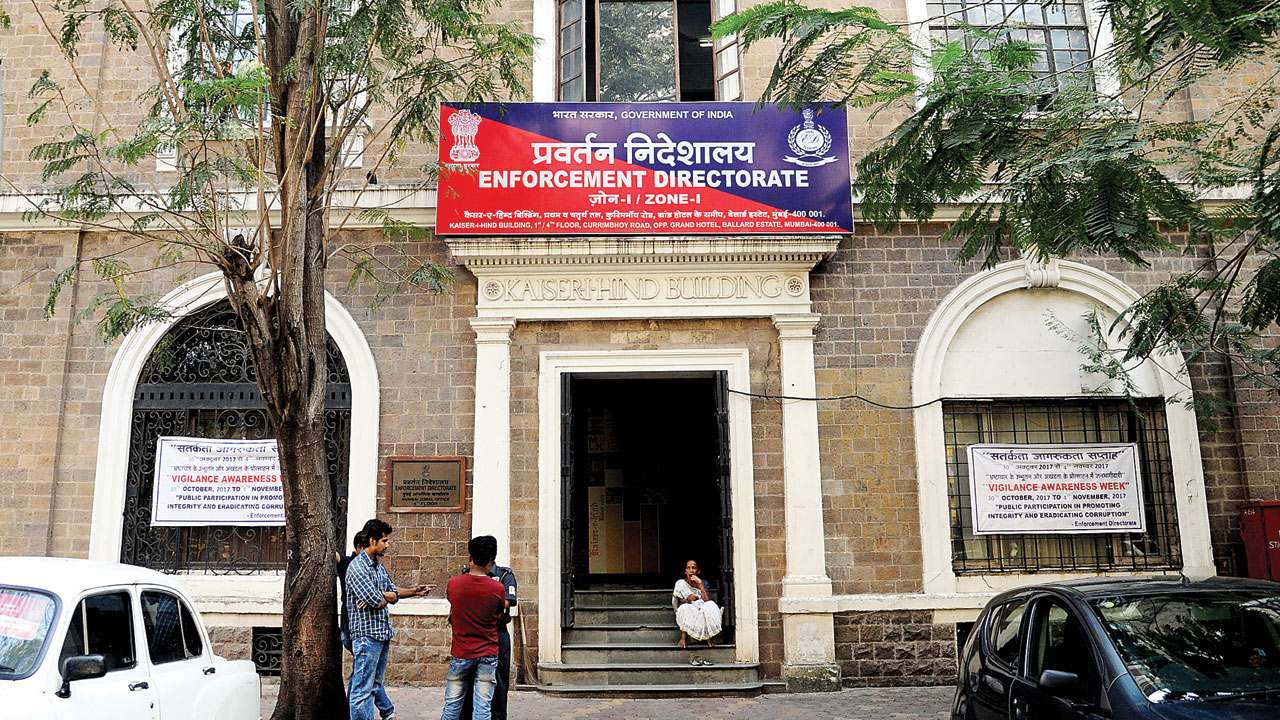No place for arbitrary acts

Enforcement Directorate Acting under PMLA, the Enforcement Directorate (ED) has of late knocked on the doors of the rich and mighty, including politicians and business houses
Recently the Supreme Court struck down a part of Section 377 of the Indian Penal Code as being “manifestly arbitrary”. Whether the State can be restrained by such principles of “manifest arbitrariness” and “disproportionality” in cases of economic offences like Prevention of Money Laundering Act (PMLA) as far as attachment of property is concerned, more so when such acts reveal noble objectives? The issue facing us, right from the time of the dismissal of the Namboodiripad government in Kerala, are the allegations that all kinds of powers — constitutional, economic, investigative etc. — are abused.
The scourge of drugs and crime directed attention towards money laundering. The United Nations Convention against Corruption adopted in October 2013 mandates “strengthening international cooperation in preventing and combating the transfer of funds of illicit origin, derived from acts of corruption, including the laundering of funds, and in returning such funds”. The stress, quite evidently, was on getting back economic gains of crime to the “common good” of the society. There existed a global consensus to go after “proceeds of crime”. The PMLA seeks to mitigate such anxieties of the community.
Acting under PMLA, the Enforcement Directorate (ED) has of late knocked on the doors of the rich and mighty, including politicians, business houses, regional leaders and bookies. But what bothers businesses is the ED’s competence to inflict on citizens a reverse burden of proof, especially in case of pre-trial attachment of property and funds just on basis of reasons to believe of the investigative authority and not concrete facts. So even without investigation being complete, you can be charged and your property can be attached just because a complaint/investigation exists against you. The germane question is to what extent the burden of proof is placed on an individual and businesses. What happens to rule of being “presumed innocent till proven guilty”? How would it affect prosecution in money laundering and economic offences?
PMLA provides for attachment of property involved in money laundering even before the stage of trial itself, which effectively means that though a citizen is presumed not guilty, he is deprived of control over his property, when the prosecution believes that it comes from tainted money, effectively destroying lives, families, reputations and businesses, just on the basis of investigators’ reason to believe sand not on evidence. The rights of the citizen without even a charge being framed ought to be protected. At this stage, what would be cardinal is to protect businesses and reputations. In Babu versus State of Kerala, the Supreme Court articulated that it is true that certain statutes “provide for presumption of guilt if the circumstances provided in those statutes are found to be fulfilled and shift the burden of proof of innocence on the accused. However, such a presumption can also be raised only when certain foundational facts are established by the prosecution. There may be difficulty in proving a negative fact”.
The same rule would also apply to attachment proceedings if not through criminal jurisprudence, assuming that attachment proceedings are civil proceedings, then through articles 14, 19 and 21 of the Constitution which introduce the doctrines of proportionality and reasonableness. Thus implying that even where presumption of tainted activity is provided for in law, all State action has to be based on reasonable ground and no disproportionate action is permissible.
Similar provisions exist in NDPS ACT for offences only under NDPS Act and not for any general or regular crimes outside the ambit of NDPS. PMLA allows invoking the scheduled offences clause under PMLA, wherein a citizen’s property can be confiscated for crimes like murder which are not driven by “commercial gains”. Here the economic effect can even be as low as Rs 500.
Prosecution giving effect to attachments without itself first substantiating foundational facts can fall foul of Article 14 of the Constitution, as nothing could be more excessive and disproportionate than depriving a person of his reputation and property without establishing in fact the presence of the “proceeds of crime” and establishing prima facie “money laundering”. Justice Nariman writing for the majority in Shayara Bano versus Union of India held “Also, when something is done which is excessive and disproportionate, such legislation would be manifestly arbitrary…”
An illustration of this would be ED attaching properties worth Rs 200 crore when it can establish foundational fact for only 100 crore. The moment foundational fact jurisprudence comes in, mere reasons to believe would not mean mere suspicion but at least a grave suspicion, and reasonably speaking, some more facts than mere grave suspicion. Economic transaction in the modern world is dependent on factors like Registration Act even if money is shifted through hawala, banking transactions and other checks and control. Again, attachment or confiscation without proving foundational fact would also go contrary to right to reputation which forms part of Article 21 of the Constitution. Supreme Court in Subramanian Swamy’s case opined in the following terms: “...We have already held that reputation is an inextricable aspect of right to life under Article 21 of the Constitution and the State in order to sustain and protect the said reputation of an individual has kept the provision under Section 499 IPC alive as a part of law.” Hence any attachment under PMLA without conforming to the principle of foundational facts would be susceptible to constitutional challenge as destroying reputations and lives and the principles of reasonableness and proportionality would act as fetter on state action.
The authors are advocates in the Supreme Court. Views are personal.






























